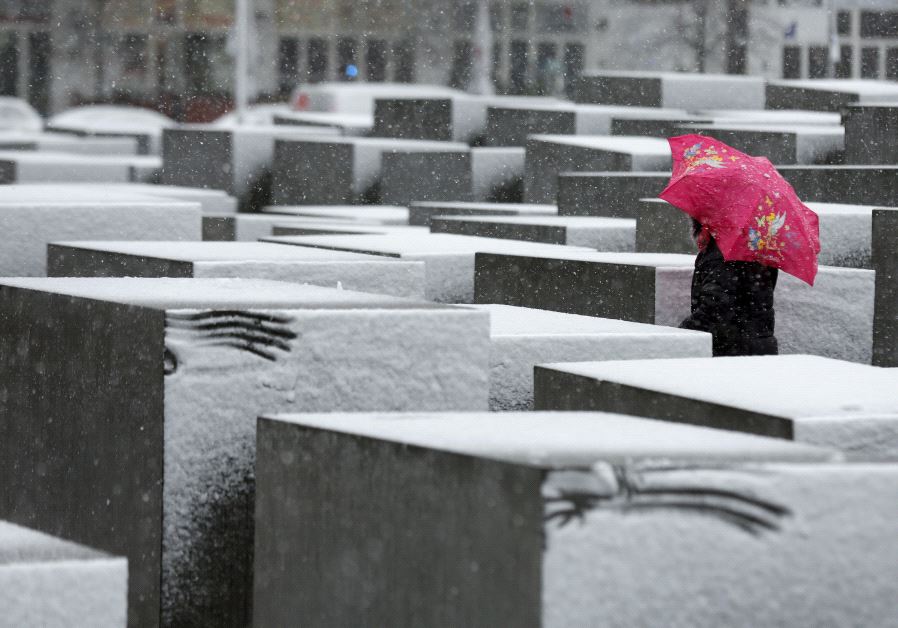The Holocaust’s impact in postwar societies
Perhaps the Holocaust’s main theological effect has been that the Roman Catholic Church radically changed its position toward Jews.
 A woman walks through the Holocaust memorial during heavy snowfall in Berlin.
A woman walks through the Holocaust memorial during heavy snowfall in Berlin.